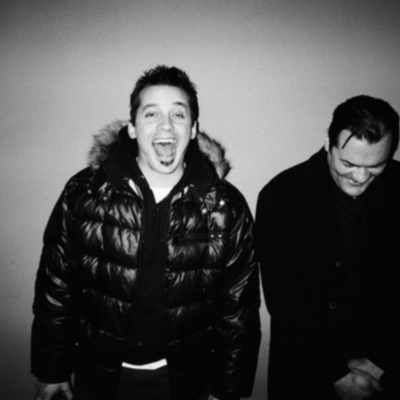
Tochi Eze is a Nigerian fiction writer and scholar whose debut novel, This Kind of Trouble, explores the relationships between language and power through intergenerational identity, mental health, colonialism, and the African diaspora. Spanning a century and told through multiple perspectives in Nigeria and the United States, the plot follows how choices made by the characters and their ancestors shape perceptions of reality, as a form of inheritance. The story focuses on Margaret, who is cursed with “heightened vision,” and Benjamin, who has become disconnected from his family and past.
Eze currently teaches English literature at UVA and is completing doctoral research on Black diasporic urban aesthetics and world-making in global cities. She spoke to C-VILLE about This Kind of Trouble.

C-VILLE: This novel grew out of your MFA thesis. Describe that process.
Tochi Eze: I was going to have a collection of short stories but then Margaret’s scene just came to me really vividly …. I started off with her having a psychotic episode. I really wanted to investigate what she thought was happening to her… to embody her experience and have some sort of empathy with this woman who was insisting that creatures were haunting her. The question for me was really, ‘What if it’s true?’ What if I step away from what I know—in the language of mental health—and just inhabit the mindspace of this character and investigate what exactly she claims is happening to her? And that sent me down a rabbit hole to go back to the past to see where some of these ideas may have germinated.
What was the biggest change you made to the book?
The opening chapter was initially supposed to be Margaret but one of my MFA committee professors was like, ‘I think this novel wants to start with Benjamin.’ And then my editors said, ‘This novel wants to start with Benjamin.’ So we had to swap and it was a position I wrestled with. You know, writers say that, theoretically, you have to take all sides and like all your characters equally, but I feel like Benjamin made me realize this. Because I then had to go back to Benjamin and pay attention … this typical man who leaves his family because it gets rough—I had to see things from his perspective. I think there’s a way that his flaws give the book a momentum or humanness.
What kind of research was involved?
I drew a lot from personal, collective, and familial memory. I’d grown up watching a family member struggle with visions and … I’d seen this idea of generational haunting in my own family but also it’s a common trope in Africa—the idea that the past is unruly and you can’t think of it as some kind of tidy, complete moment of time that is just behind us and from which we can steadily move on. So, there’s this ethos of many Africans I know, about the past coming back to haunt—whether we’re thinking about the postcolonial past, or the complicity of our ancestors, or personal family dynamics.
I also did research, especially when I wanted to give fidelity to language, syntax, and dialogue. I write about 1905, but I also write a lot about 1960s Lagos at the cusp of independence, so it was really important for me to have a clear visual image of the political and social landscape but also the physical, concrete, spatial dynamics of Lagos as a city, evoking that in narrative. One of the factors that worked out for me is that I was thinking in my native language and translating into English, and I think that really paid off in how … the historical voice is not quite like the ways we use words and syntax in day-to-day language. I had to switch off the English side of my brain and invoke the characters’ thinking in Igbo and then translate from there.
How does your academic work relate to your creative work?
I work in the global Anglophone tradition, specifically in the 20th century. That’s my area of specialization. So I’m constantly interested in what it means to think about globalization but also cultural studies … to think about the intimacies and specificities of cultures, especially cultures of African diaspora communities. There’s this enmeshment or entanglement between the global and the local and that’s my entry point for fiction. … I’m trying to create a dialogue that thinks about the ways the past echoes in the present.
Has your time as a doctoral student at UVA impacted the novel?
It did. I’m a fiction writer but I’m also a scholar. … There’s been an openness in the English department at UVA that gave me permission to be both things.
The fiction has also sort of bled into how I do my critical research. Even when I’m writing critically, I have to be consuming an exorbitant amount of fiction … and writing fiction as well. So I feel like, in a very indirect way, there’s this synergy between the creative and the critical … which I would argue is the future of the humanities.





